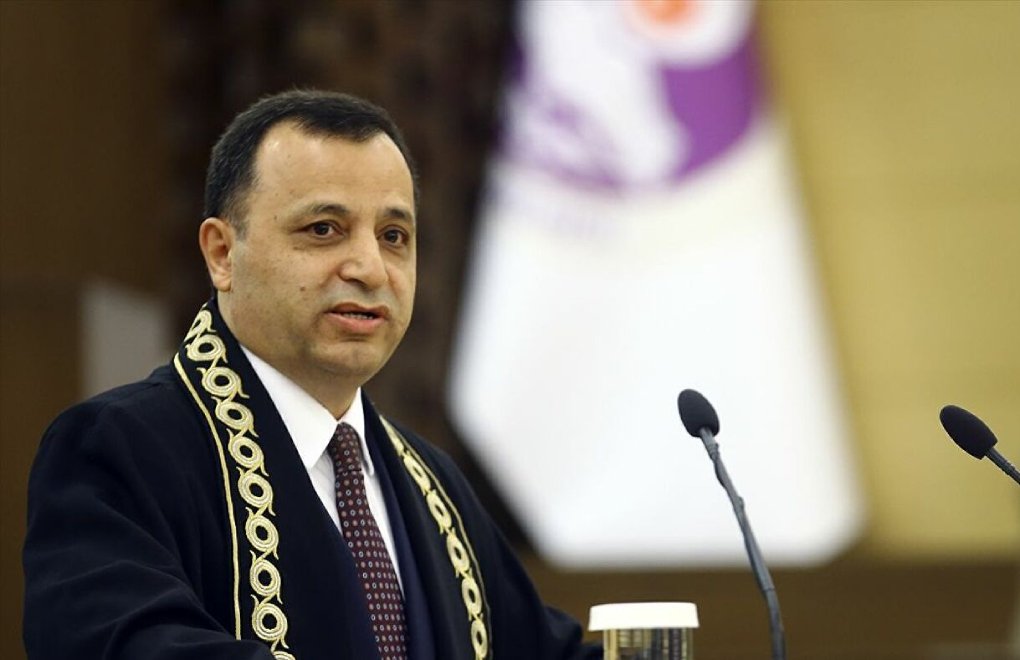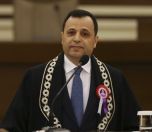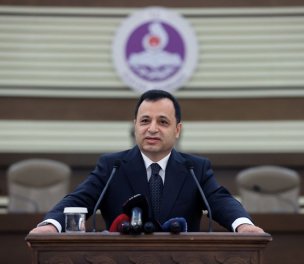Click to read the article in Turkish
Constitutional Court President Zühtü Arslan attended the meeting of a project financed by the European Union (EU) and the Council of Europe (CoE) (The Project of Supporting the Effective Implementation of Turkish Constitutional Court Judgments in the Field of Fundamental Rights).
The meeting held in a hotel in İstanbul yesterday (February 14) was attended by CoE Ankara Office Chair Christian Urse, Deputy Chair of Board of Judges and Prosecutors (HSK) Mehmet Akif Ekinci, İstanbul Chief Public Prosecutor's Office Şaban Yılmaz, İstanbul Regional Court of Justice Presiding Judge Murat Boylu and several other judges and prosecutors.
Speaking at the opening ceremony, Arslan made some remarks about individual applications to the Constitutional Court.
Recalling that the right to an individual application was introduced in Turkey by the 2010 Constitutional referendum and entered into force in 2012, Arslan noted that the objective of this practice was to ensure that "the alleged rights violations are addressed within national borders and they are prevented from being taken to the European Court of Human Rights (ECtHR)".
According to Arslan, the principal objective here is to "increase the standard of protection of fundamental rights and freedoms."
'Two threats'
Further in his statement, Arslan referred to two basic threats to the functioning of individual application as a method of effective remedy:
"The first one is the gradually increasing workload. On every occasion, we say that the workload has reached a dramatic dimension.
"Today, there are nearly 66 thousand individual applications pending before the Constitutional Court. I should look at the number of applications pending before the countries that have embraced the system of individual applications like us in order to express how startling this number is. Germany or Spain embraced it long before we did, but the number of applications there is incomparably low when compared to ours.
"The number of applications we received in January 2022 was nearly 12 thousand, which is higher than the number of applications submitted to the German and Spanish Constitutional Courts in a year. That is why we sometimes jokingly say that the only competitor of the Constitutional Court is the European Court of Human Rights. This is unfortunately the case.
"There are currently around 70 thousand applications pending before the ECtHR and these applications come from 47 countries. The Constitutional Court alone receives almost as many applications as the ECtHR receives from 47 countries. I would like to emphasize that this issue stands there as a very serious issue that needs to be resolved."
'It is not an appeals court'
According to Arslan, the second danger and threat is that "the objective effect of individual application is not brought into effect." He underlined that the main objective of individual applications is to ensure that new violations are prevented, adding that there are some problems.
Noting that the reasons behind the violations are indicated in Constitutional Court rulings, the top court head briefly said:
"Whatever causes the violation in question, the related administrative authorities or judicial bodies should eliminate the concrete violation.
"This is also not enough by itself. When they face similar matters, they should pass decisions by taking the principles indicated by the Constitutional Court in rulings of rights violations into account. Otherwise, similar problems will constantly come before the Constitutional Court."
Concluding his remarks, Constitutional Court President Zühtü Arslan indicated that the top court is not an appeals court in individual applications. "In fact, a reason behind this workload is this," Arslan said, underlining that "the elimination of violations of fundamental rights and freedoms is the duty of public authorities and first instance courts."
He added: "Constitutional Court is not an authority that eliminates violations of rights at first hand. It cannot be so, either." (HA/SD)








